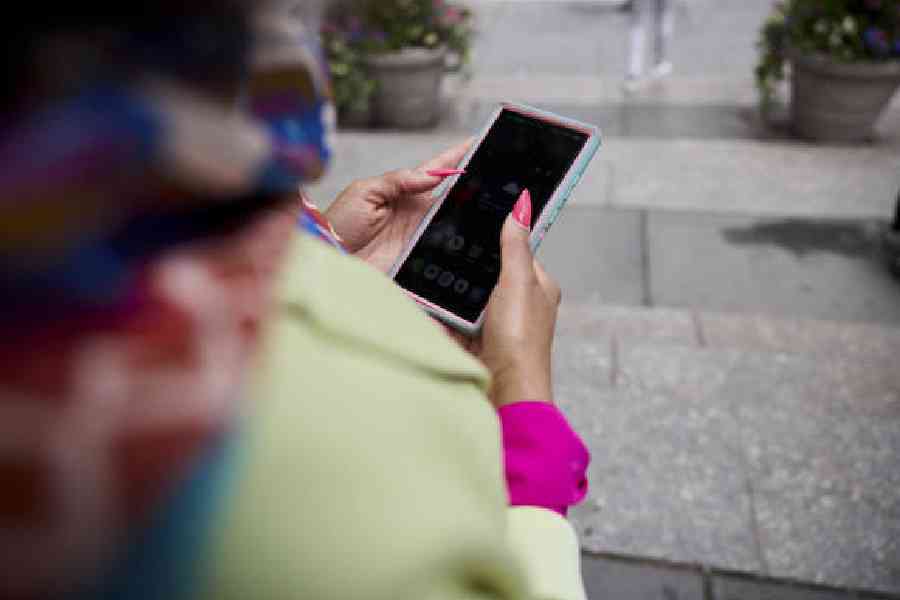Maybe you’re sitting on a subway or a plane awaiting takeoff. You glance over at your neighbour’s phone screen — innocently, of course. But instead of a glowing feed of TikTok videos or the draft of an email, you’re met with a seemingly inert black screen, although this person’s thumbs are swiftly tapping it.
It’s like a slap on the wrist, a “Keep out” sign, a trap set for nosy people who can’t resist snooping on other people’s phones. It’s a privacy screen, an accessory for phones and laptops designed to significantly darken or totally obscure their surfaces to wandering eyes.
Lately, the screen protectors have become a common sight in densely populated public areas. They have become particularly popular among people with sensitive professions, such as doctors and therapists, who must be cautious about their patients’ personal information when working outside their offices.
But at a time when it has become normal to assume a level of surveillance in public places — not just by security cameras, but by our fellow travellers in this mortal coil who may turn us into Internet content — the screens have become more appealing to the average person, too.
“I don’t like people looking at my stuff,” said Shanaisa O’Neal, who on a recent afternoon was scrolling her phone, its screen visible only to her, as she rode the F train in Manhattan with her daughter.
O’Neal said she bought a screen protector after catching an older man “naturally” looking over at her phone one day while riding the subway. As someone who occasionally checks her bank account in public and keeps photos of her home and her children on her phone, she felt the privacy shield was necessary.
Even more than personal details such as banking information, what some people say they’re most trying to prevent is someone seeing — and judging — the mundane ways they pass time scrolling.
“I waste so much time, especially on the phone, and the last thing I need is someone saying, ‘Oh, he’s on Instagram,’” said Guy Knoll, a 21-year-old comedian living in New York City, US.
Poking fun at himself, Knoll admitted that any judgment of his Instagram habits, for instance, would probably be warranted “because it is a degenerate activity to just be on social media all day,” as he put it.
Some of that online content, typically tailored to suit a person’s tastes via “the algorithm” — our ominous shorthand for the calculations websites use to anticipate and predict our preferences — can seem more revealing than a passport when it’s exposed to strangers.
According to Leslie John, a behavioural scientist and professor at the Harvard Business School, US, who studies privacy decision-making, what we choose to post is one facet of ourselves that we want other people to see. But what is regurgitated back to us by social media algorithms, which are becoming “scarily good” at understanding users, may reveal what we actually care about.
How do those algorithms know us so well? It’s because most phone users are forking over tons of data and personal information to tech companies every time they download an application or search online. Psychologists refer to this mismatch, in which the value people place on privacy seems to be contradicted by their behaviour, as the privacy paradox.
Dennis Stolle, senior director of American Psychology Association’s office of applied psychology, said the privacy screen was an example of people exerting their value for privacy in a situation where they know they can immediately and tangibly control the space around them.
“You can put that privacy screen over your phone and feel a sense of accomplishment,” he said. “Even though, in the big picture, that may be the least of your worries, it still is somehow psychologically satisfying to do something to protect your privacy.”
NYTNS










